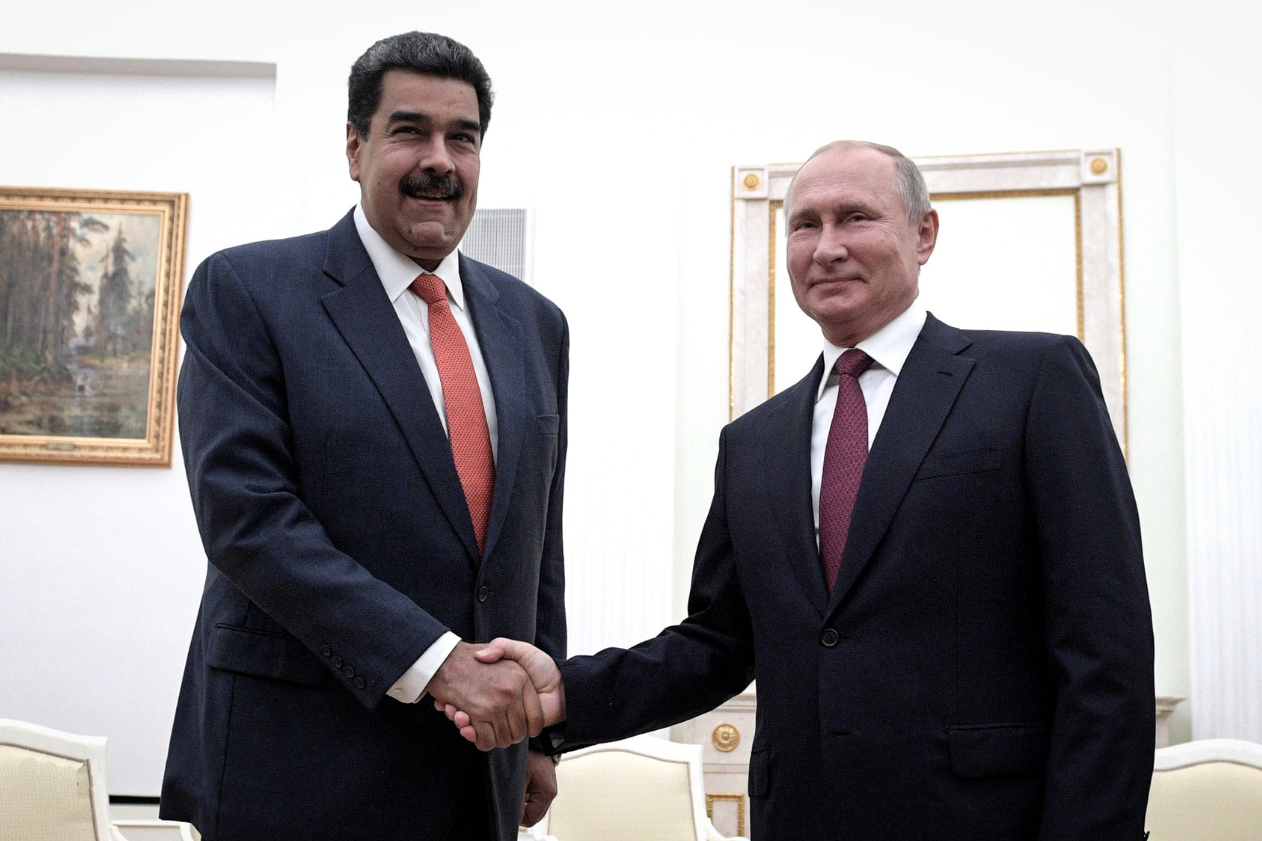Coauthor Ulf Thoene
Russia has been a crucial ally of Venezuela throughout its complex crisis, with which Russia has established solid political, economic and cultural relations. On several occasions, Russia has expressed its support for Venezuela, consolidating itself as its strongest and most powerful ally, although close ties between Vladimir Putin and Hugo Chávez already existed before the Venezuelan crisis that was triggered under the government of Nicolás Maduro.
What motivates Russia’s support for Venezuela?
Russia’s presence in Latin America is not limited to a single country. Although Russian foreign policy paid little attention to Latin America during the 1990s, since 2003 its presence has intensified, especially in Cuba, Nicaragua and, above all, Venezuela, which has become its most important ally in the region.
On one hand, the predominant structural explanations highlight geopolitical considerations, the balance of power, and military conditions as key factors in Russian foreign policy. On the other hand, constructivist approaches stress the crucial role of ideas and beliefs in Russian President Putin’s foreign policy narrative. According to these perspectives, Russian foreign policy is affected and weakened by relations with a hostile West, particularly the United States and North Atlantic Treaty Organization (NATO) member states, which seek to limit and control Russian interests abroad.
However, both approaches present difficulties and are insufficient when analyzing a multifaceted Russian foreign policy towards Latin America. Despite their valuable contributions, these studies tend to focus on specific aspects or dimensions of one of the following areas: diplomatic, informational, military or economic. A recent study indicates that a state’s foreign policy is mainly characterized by two central elements. These policies are designed to achieve a set of objectives, but due to resource restrictions, the range of options for international action will depend on the resources available and the expected benefits. From this perspective, any partnership entails costs.
The more powerful states certainly have more resources and capabilities to bring about desired changes in the status quo, and they will try to exert their influence on weaker states. Nevertheless, asymmetric alliances — between weak and strong states — can provide the smaller ones with vital support and the stronger ones with political or other support.
Russia has provided diplomatic support to Venezuela in various international forums, blocking on multiple occasions multilateral initiatives aimed at sanctioning or imposing embargoes on Venezuela. In addition, Russia has expressed great concern about external interference in Venezuela’s internal affairs, warning of the possibility of using force to the detriment of Venezuela’s territorial integrity and political independence. In exchange for this clear support, Russia obtains tangible benefits.
Although the Russian and Venezuelan governments share an interest in challenging and weakening the power of the United States, this ideological bond is in line with concrete geostrategic interests. In fact, the two main areas of Russian foreign policy in Venezuela are energy and arms sales, which have recently been strengthened and expanded by the media and cultural aspects of foreign policy.
Russian oil companies are involved in major exploration projects for oil and mineral resources in Venezuela, including valuable rare earths. This Latin American country has become one of the main buyers of Russian weapons and weapons systems. Moreover, Venezuela has provided early official support for Russia’s actions in Ukraine and has positioned itself against NATO’s defensive response.
Furthermore, significant budget allocations for military funding in Venezuela have contributed to maintaining the privileges of its military elite. At the same time, Russia has played a crucial role as a supplier of essential goods to cover the basic needs of the Venezuelan people.
Russian investment and loans have been crucial to keep Nicolás Maduro in power and continue to be so in the run-up to the 2024 presidential elections. Nonetheless, Venezuela’s large debt with Russia, the default on its payments, instability and the deterioration of the political situation are negative factors for the status quo and could affect the allocation of resources. Despite this, for now, a slight improvement in relations with the United States and the war in Ukraine seem to have eased the tension in Nicolás Maduro’s government.
*The extended version of this text can be found here.
Ulf Thoene (@UlfThoene) is an Associate Professor at the Universidad de La Sabana, Colombia. He holds a PhD. in Law and Sociology from the University of Warwick, UK.
Translated from Spanish by Micaela Machado Rodrigues











